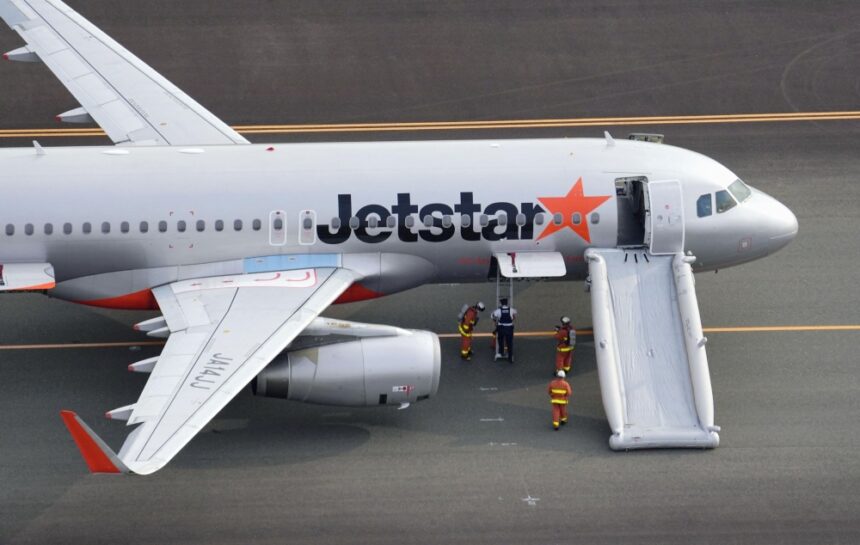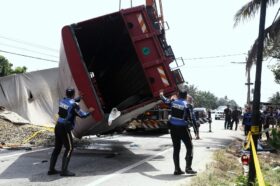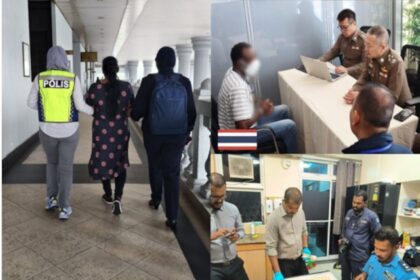SINGAPORE, June 11 — Australia’s Qantas Airways will close its Singapore-based budget airline Jetstar Asia, the group said today, blaming rising supplier costs, high airport fees and strong regional competition.
The shutdown of the 20-year-old airline next month will result in up to 500 job losses, a Qantas spokesperson said, and Jetstar Asia’s fleet of 13 Airbus planes will be redeployed to Australia and New Zealand.
Airlines across Asia, including budget rivals like Singapore Airlines’ Scoot, Malaysia-headquartered AirAsia and Vietnam’s VietJet Aviation, have restored and grown their capacity post-pandemic, driving competition between carriers up and airfares down.
Jetstar Asia, which operated 16 intra-Asia routes from Singapore’s Changi Airport, has faced growing challenges in recent years and has been unable to deliver returns comparable to stronger-performing core markets within the Qantas group, the company said.
The airline has seen “really high cost increases” at its Singapore base, including double-digit rises in fuel, airport fees, ground handling and security charges, Jetstar Group CEO Stephanie Tully told reporters.
Jetstar Asia, which Tully said reported profits in only six of its 20 years of operation, is currently expected to post an underlying loss of A$35 million (RM97 million) before interest and tax in the financial year ending June 30.
The airline said Jetstar Asia’s closure would release up to A$500 million to be recycled into its core businesses based largely on the value of the 13 planes, including the ability to replace costly leased aircraft that Australia’s Jetstar Airways is using domestically.
Jetstar Asia will gradually reduce its schedule before closing on July 31, and customers on cancelled flights will be offered full refunds and moved onto other airlines where possible.
Qantas said it would take a one-off financial hit of about A$175 million from Jetstar Asia’s closure over two financial years.
Qantas shares were trading about 1 per cent lower.
The group said today it continues to see strong demand across its domestic and international businesses.
Cost woes
Tully said Jetstar Asia’s cost base was hit particularly hard in the last 18 months to two years.
Changi, the world’s fourth-busiest airport by international passengers, is steadily raising charges from this year through 2030 to fund investments and higher operating costs.
The airport in March 2023 moved Jetstar Asia’s operations from Terminal 1 to Terminal 4, the only terminal not connected by train to the other terminals.
That meant Qantas passengers connecting from Australia had to take a shuttle bus for transfers to Jetstar Asia flights to destinations like Phuket and Ho Chi Minh City.
Jetstar Asia had objected to the change of terminals.
“We think it has had an impact on the business,” Tully said.
Changi said in a statement it was disappointed by Jetstar Asia’s decision to exit Singapore but respected its commercial considerations.
Jetstar Asia accounted for around 3 per cent of the airport’s passenger traffic last year. Changi said it would work with other airlines to fill capacity gaps, including restoring connectivity on four routes that no other airline currently operates.
Australia, New Zealand focus
International operations at Qantas’ other budget carriers, Jetstar Airways and Japan-based Jetstar Japan, will not be affected, the airline said.
Jetstar Japan, which is primarily a domestic airline, is profitable and doing well, Tully said.
Six of Jetstar Asia’s 13 narrow-body aircraft will replace leased aircraft at Jetstar’s Australian operations, helping to lower costs, while four jets will replace ageing planes Qantas uses to serve the mining industry.
Two planes will be deployed to Jetstar in Australia and one in New Zealand to grow capacity and potentially launch new routes, the airline said, in a move that will create more than 100 local jobs.
Employees losing jobs in Singapore will get redundancy benefits and support to find jobs within the Qantas group or other airlines. — Reuters
Source: 
Qantas pulls plug on Singapore-based budget arm Jetstar Asia, at least 500 to lose jobs

































